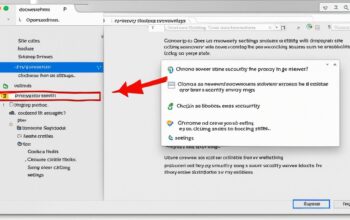Leaving a job is a significant decision that can be influenced by various factors. Understanding the reasons behind job departures is crucial for both employees and employers. In this section, we will explore some common motivations that lead individuals to resign from their positions.
Key Takeaways:
- Employees leave jobs for various reasons, including company changes, career advancement, better compensation, and family circumstances.
- Understanding your motivations for leaving a job is important when articulating your reasons to potential employers.
- When discussing reasons for leaving a job in an interview, focus on positive aspects such as professional growth and new challenges.
- Before leaving a job, consider alternative strategies to improve job satisfaction, such as seeking advancement opportunities or further education.
- Avoid negative reasons for leaving a job, such as complaining about the current job or company, when explaining your decision in interviews.
Common Reasons for Leaving a Job
When it comes to job departures, there are several common reasons why individuals choose to leave their current positions. These reasons can range from external factors to personal motivations. Here are some common factors that influence job quits:
1. Business Acquisition or Merger
During a business acquisition or merger, there is often a significant shift in company structure, culture, and leadership. These changes can create uncertainties and a sense of instability among employees, leading some to seek opportunities elsewhere.
2. Company Downturn
In times of economic decline or financial challenges, companies may experience a downturn. This can result in layoffs, reduced benefits, and job insecurity. As a result, individuals may decide to leave their current job in search of a more stable employment situation.
3. Company Restructuring
When a company undergoes restructuring, it can lead to changes in job roles, responsibilities, and reporting structures. This disruption can impact job satisfaction and make employees consider alternative career options.
4. Different Leadership
The leadership style and approach of managers and supervisors can greatly influence the work environment and employee morale. If individuals find themselves working under leaders whose management style does not align with their values or vision, they might choose to pursue opportunities with different leadership.
5. Different Work Environment
Some individuals may leave their job due to dissatisfaction with the work environment. This could encompass factors such as office culture, lack of work-life balance, or a toxic work environment that hinders personal and professional growth.
6. Career Change to a New Industry
Exploring new industries and career paths is another common reason for leaving a job. Individuals may seek opportunities that align more closely with their interests, passions, or long-term career goals.
7. Career Advancement and Professional Development
Feeling stagnant in their current positions, employees often seek career advancement opportunities and chances for professional growth. If they perceive limited prospects for advancement within their organization, they may opt to explore new job opportunities.
8. Better Compensation and Benefits
Improving one’s financial situation and securing better benefits are also influential factors in job departures. Individuals may leave their current job in pursuit of higher compensation, improved benefits packages, or more favorable working conditions.
9. Family Circumstances
Family circumstances, such as the need to relocate, care for loved ones, or accommodate changes in personal responsibilities, can also factor into a person’s decision to leave a job. Family considerations often play a significant role in career choices.
| Reasons for Leaving a Job | Percentage |
|---|---|
| Business Acquisition or Merger | 20% |
| Company Downturn | 15% |
| Company Restructuring | 12% |
| Different Leadership | 10% |
| Different Work Environment | 18% |
| Career Change to a New Industry | 8% |
| Career Advancement and Professional Development | 17% |
| Better Compensation and Benefits | 15% |
| Family Circumstances | 5% |
The Importance of Knowing Why You Want to Change Jobs
Before considering a job change, it is crucial to understand why you want to make the change. This understanding helps in articulating your reasons to potential employers and ensures that you are making a well-informed decision. It also helps you convey your motivations effectively in job interviews.
Knowing the reasons for wanting to change jobs provides several benefits:
-
Better career alignment: Understanding why you want to leave your current job allows you to evaluate whether the new opportunity aligns with your career goals and aspirations. This alignment is key to long-term job satisfaction and professional growth.
-
Focused job search: When you know your reasons for wanting to change jobs, you can target companies and positions that address those specific needs and preferences. This focused approach increases your chances of finding a job that offers the desired benefits.
-
Confidence in decision-making: By comprehending the motivations behind your desire for a job change, you can make more confident decisions throughout the process. Whether it is evaluating job offers or making the final decision to resign, understanding your reasons provides a solid foundation.
-
Effective communication: When you can clearly articulate your reasons for wanting to change jobs, it becomes easier to convey those motivations to potential employers. This communication enables employers to understand your goals and assess how you can contribute to their organization.
Understanding the Factors to Consider
Before leaving a job, it is essential to consider several factors to ensure a successful transition:
- The level of job satisfaction in your current role
- The prospects for career growth and advancement
- The potential for increased compensation and benefits
- The culture and work environment in the new organization
- The impact on personal and family circumstances
Considering these factors can help you make a more informed decision and avoid any potential regrets later on.
It is worth noting that the process of understanding your reasons for wanting to change jobs may require self-reflection and introspection. Take the time to evaluate your personal and professional goals, assess your current situation, and determine the key drivers behind your desire for change.
Remember, knowing your reasons for wanting to change jobs is not only important for your own decision-making but also plays a significant role in effectively communicating your motivations to potential employers.

Tips for Explaining Reasons for Leaving a Job in a Job Interview
When it comes to explaining your reasons for leaving a job in a job interview, it’s essential to approach the situation with honesty and tact. Delivering your explanation in a positive light is key, highlighting reasons such as professional growth, career advancement, seeking new challenges, or aligning with personal aspirations. By doing so, you can convey your motivations effectively and create a positive impression on potential employers.
Here are some tips to keep in mind when discussing your job departures:
- Focus on professional growth: Emphasize how your decision to leave was driven by a desire for professional development. Highlight any instances where you’ve taken the initiative to learn new skills, pursue additional certifications, or seek out challenging opportunities.
- Show alignment with career goals: Discuss how the new position aligns with your long-term career goals. Emphasize how it will allow you to leverage your strengths, expand your skill set, or gain experience in a specific industry or role.
- Highlight positive opportunities: Emphasize the positive aspects of the new position that attracted you. Focus on factors such as a supportive work environment, opportunities for advancement, a better fit with company culture, or the chance to work on exciting projects.
- Avoid negativity: Refrain from speaking negatively about your current or previous employer. Instead, keep the focus on your personal and professional growth. Remember, potential employers are looking for candidates who can handle challenges and maintain a positive attitude.
- Be honest but tactful: If there were challenges or issues in your previous role that contributed to your decision to leave, be honest but diplomatic in explaining them. Frame them as learning experiences or stepping stones to finding a better fit.
Remember, the goal is to showcase your professionalism, ambition, and enthusiasm for new opportunities. By providing a positive explanation for your job resignations, you can make a compelling case for why you’re the right candidate for the job.
Alternative Strategies Before Leaving a Job
Before making the decision to leave your current job, it’s important to explore alternative strategies that can potentially improve your job satisfaction. By considering other options before quitting, you may find ways to enhance your professional growth and find renewed fulfillment in your current role.
Here are some alternative strategies to consider:
1. Volunteer within the Organization
Volunteering can provide you with opportunities to contribute to meaningful projects and make a positive impact within your current workplace. By taking on additional responsibilities through volunteering, you can gain new skills, expand your network, and bring a fresh perspective to your role.
2. Take on New Responsibilities
If you feel unfulfilled in your current position, consider discussing with your manager the possibility of taking on new responsibilities or projects. This can help you broaden your skillset, challenge yourself, and bring a renewed sense of purpose to your work.
3. Seek Advancement Opportunities
If you’re looking for more growth and development in your career, explore advancement opportunities within your organization. This could involve applying for internal job postings, expressing your career aspirations to your manager, or seeking mentorship to help you reach your long-term goals.
4. Pursue Further Education
Enhancing your knowledge and skills through further education can open doors to new opportunities and increase job satisfaction. Consider enrolling in relevant courses, workshops, or certifications that align with your career goals. This can provide you with fresh perspectives and valuable expertise.
Alternative Strategies Before Leaving a Job
Before leaving a job, consider alternative strategies to improve job satisfaction. This may include volunteering within the current organization, taking on new responsibilities, seeking advancement opportunities, or pursuing further education to gain new perspectives and skills. These approaches can help you find renewed motivation and fulfillment in your current role.
| Strategies to Consider | Potential Benefits |
|---|---|
| Volunteer within the Organization | Contribute to meaningful projects, gain new skills, expand network |
| Take on New Responsibilities | Broaden skillset, challenge yourself, bring renewed purpose |
| Seek Advancement Opportunities | Grow and develop in your career, reach long-term goals |
| Pursue Further Education | Enhance knowledge and skills, open doors to new opportunities |
Reasons to Avoid When Explaining Why You Want to Leave a Job
When discussing your reasons for leaving a job, it is crucial to be mindful of the words you choose. Negative reasons for leaving a job can harm your chances of landing a new position and can reflect poorly on your professionalism. It is essential to avoid complaining about your current job or company. Instead, focus on the positive aspects of your career, such as the accomplishments you have achieved and the desire for personal and professional growth.
Another job resignation pitfall to avoid is mentioning personal reasons that are unrelated to professional growth. While personal circumstances may indeed impact job decisions, it is crucial to tailor your explanation to the professional realm. Discuss elements like career opportunities, skill development, and alignment with your long-term career goals. By doing so, you demonstrate your commitment to advancing in your field and your ability to make sound decisions regarding your career path.
Additionally, it is essential to maintain a professional and tactful tone when discussing your reasons for leaving a job. Avoid making statements that may reflect negatively on your character or professionalism. Focus on the valuable experiences gained from your current role and the potential benefits and opportunities the new position offers you. By emphasizing the positive aspects, you convey your enthusiasm and eagerness to contribute to a new organization.
In conclusion, when explaining why you want to leave a job, steer clear of negative reasons, complaints, and personal circumstances that do not align with your professional growth. Emphasize your achievements, growth opportunities, and the potential benefits of the new position. With a positive and strategic approach, your explanation will leave a lasting impression on potential employers, increasing your chances of securing a new and fulfilling job opportunity.
FAQ
What are some common reasons for leaving a job?
Some common reasons for leaving a job include company downturn, acquisition, merger, or restructuring; desire for change in terms of advancement, industry, environment, leadership, or compensation; and family circumstances.
Why is it important to know why you want to change jobs?
Understanding your motivations for changing jobs helps you articulate your reasons to potential employers and make a well-informed decision. It also allows you to convey your motivations effectively during job interviews.
How can I explain my reasons for leaving a job in a job interview?
When explaining your reasons for leaving a job in a job interview, it is important to be honest and tactful. Frame your explanation in a positive light, focusing on professional growth, career advancement, seeking new challenges, or alignment with personal aspirations. Avoid negativity towards your current employer and highlight the positive opportunities offered by the new position.
Are there alternative strategies to consider before leaving a job?
Yes, before leaving a job, you can consider alternative strategies to improve job satisfaction. This may include volunteering within the current organization, taking on new responsibilities, seeking advancement opportunities, or pursuing further education to gain new perspectives and skills. These approaches can help you find renewed motivation and fulfillment in your current role.
What reasons should I avoid when explaining why I want to leave a job?
When explaining why you want to leave a job, it is important to avoid negative reasons such as complaints about the current job or company, personal reasons unrelated to professional growth, or any statements that may reflect poorly on your character or professionalism. Focus on highlighting accomplishments, growth opportunities, and alignment with career goals instead.







